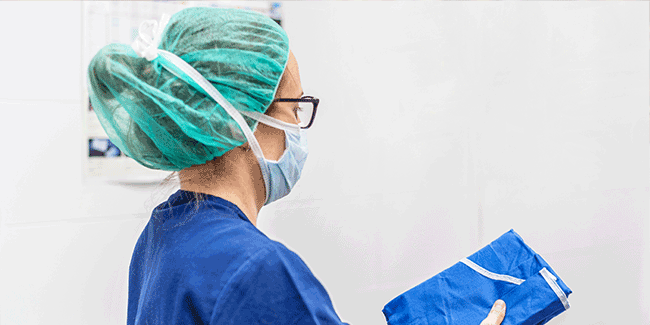Following a wide-ranging critical report from the Senedd's Health Committee, its follow-on survey of frontline health and social care workers has revealed the impact of COVID-19 on their work and their personal lives.

The Committee's report raised fundamental questions about care homes, PPE, testing and issues faced by people shielding.
The Committee will now put the findings of its report and survey to the Health Minister, Vaughan Gething MS this Thursday (16 July). Members of the Senedd will use evidence from front line workers as it questions the Minister as well as the Deputy Minister for Health and Social Services, Julie Morgan MS and the Chief Executive of NHS Wales, Dr Andrew Goodall.
The survey
The Committee has heard from nurses, pharmacists, dentists, radiographers, carers and counsellors across Wales. Front line workers were asked to share their experiences and views on the impact of COVID-19.
In their responses, respondents outlined a wide variety of issues from immediate practical concerns to longer term implications. In addition to issues with PPE; testing; shielding of vulnerable people and financial implications, the survey respondents also raised key issues including easing restrictions and an exit strategy; impact of service disruption and redeployment of staff; mental health; impact on unpaid carers; keeping people informed; and new working practices.
Joanna Rees, a hospital pharmacist from Pembrokeshire described the practical difficulties of being available to work while caring for family:
"I'm a hospital pharmacist who has moved to working shifts to preserve social distancing in our department. I now work 12 hour days and childcare is incredibly difficult with two nursery-aged children.
"To help, the Welsh Government could provide childcare facilities that are open weekends. My husband is a farmer and my rota is a rolling 7 day one, on some weekends I work 12 hours on Saturdays and Sundays = with no childcare it means using my annual leave."
Sandra Morris, a Dental Surgeon and company director from Powys, said the financial implications of Covid-19 on her practice were serious:
"I run a small private dental practice. Our income has dried up to a tiny fraction of what it was. We have furloughed all staff. In the last few weeks, I have started seeing the odd patient for emergency care if necessary. We have kept going by using my savings and a Bounce Back loan. It is frustrating that we have to pay business rates even though we cannot run as usual. All NHS practices have their rates paid for them.
"PPE is going to be a headache when we do reopen as FFP3 masks are hard to obtain. The Chief Dental Officer has imposed stricter rules than in England which will disadvantage patients and we may need to send them over the border for care if we can't do it. The UK rules in general for dentistry are far more restrictive than other countries e.g. Italy and France regarding PPE requirements and protocols for cleaning. This means that as soon as we reopen we will start to lose money faster.
"I am praying that this all comes to an end before I run out of money but we can't stay closed forever. Patients still need care.
"The Welsh Government should extend the business rates holiday to healthcare businesses. The CDO should ensure that Standard Operating Procedures are based on scientific research and not gold plated beyond reason.
"The General Dental Council should be investigated for its use of the furlough scheme whilst still maintaining the fees charged to registrants. It should have the ability for registrants to pay in instalments."
Dr Dai Lloyd MS, Chair of the Senedd's Health, Social Care and Sport Committee added:
"For us to hold the Welsh Government to account, it's critical for the Committee to hear from those living and working through the pandemic, those caring for us and the impact it's having on their work and lives and crucially their thoughts on how it's being dealt with.
"We're extremely grateful to those who've taken the time to share their experiences"


